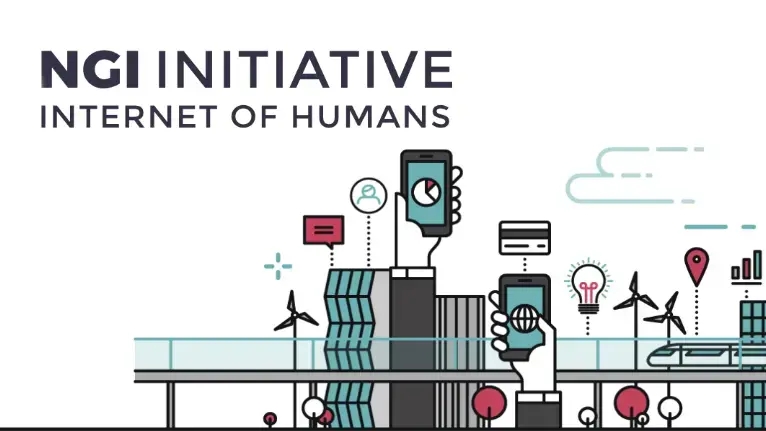just trying lemmy
- 1 Post
- 14 Comments
Google loves open source likely for another reason than you do.
Google loves open source when they can capitalize on it.
That is, when a big community works on code that Google can use for free to build their monopolistic infrastructure. They love a global community which works for them for free. They might even foster this community as far as it serves their purpose or for image reasons.
However, if they’d truly love open-source, they could open the source code to their core services. But they’d never ever do that. For this reason they also ban the AGPL license internally (https://opensource.google/documentation/reference/using/agpl-policy). The AGPL license would force Google to open their code which relies on AGPL licensed projects. Google hates that.
Google does clearly not stand for the ethical values people usually have in mind when talking about open source. For example when something is competing with them, they’ll hate it. Like ad-blockers or browsers which don’t block ad-blockers like Google chrome does. The core business of Google is about surveillance and advertising. To maximize the profitability of this, then need to violate freedoms of their users (like the freedom to use their service while blocking ads). This is in direct conflict with the ethical values often implied by free and open-source software.
So if somebody tells you “Google loves open-source and contributes a lot”, think about what it really means.

 4·1 year ago
4·1 year agoAccording to the experience of a friend, eating 1kg carrots a day makes your skin go slightly orange. You’ll likely notice only in places where the skin is thin and white. For example around your knuckles when you form your hand into a fist.

 31·1 year ago
31·1 year agoIt is completely creepy. Think about who is behind Open AI. That’s a mixture of Elon Musk, Peter Thiel (Palantir), Microsoft and others. A right-wing, anti democratic, anti-human and purely profit oriented group. The name “Tools for Humanity” is complete sarcasm. What they do with Worldcoin smells like a modern attempt of colonization. Collecting biometry, subverting critical infrastructure (financial systems), making fake promises, blinding poor people with shiny metal balls and a little bit of money in some cases.
This can be stopped though! The Kenyan government apparently banned the project - for good.

 1·1 year ago
1·1 year agoIn general, that’s definitely a problem too. Just look at Windows 11. Now M$ wants you to buy a new laptop such that their OS can run at all. I use a >10y old laptop with Linux. No performance issues for everyday use.

 1·1 year ago
1·1 year agoGoing from Google-Android to LineageOS boosted the battery life of my old Smartphone by a factor 3 roughly. There where some Google-things consuming battery in the background, probably spying on me. Also using simple Apps from F-Droid helps to get a smooth experience.

 26·1 year ago
26·1 year agoThose sympathies with a fascists are alarming and should make people worry much more than the Reddit-drama itself. Anybody cares about that?

 2·1 year ago
2·1 year agoNice! Thanks for explanation! I don’t have much experience with soldering larger circuits. Usually I’m stuck with a soldering iron and tweezers. Just recently got a used stereo microscope. That already helps a lot. But certain packages like BGA are out of reach this way.

 6·1 year ago
6·1 year agoDo you have a reflow oven? Or simply with a hot air gun? How do you do it?

 1·1 year ago
1·1 year agoCouple years ago a Youtube-Googler told me that adblockers are their big worry. Suckers.

 2·1 year ago
2·1 year agoDid not notice yet because use Piped XD
What if all the effort needed to terraform Mars would be invested in fixing the disaster we started on Earth… I bet the effort would be better invested here. Not even talking about how much of resources will be needed to bootstrap the Mars project. Terraforming Mars will sacrifice Earth.
IDEs can automate build/test flows. But you can also automate them with scripts. This has the significant benefit that you can check this scripts into your version-control system (git) and publish them together with the code. Then your collaborators can use the exact same scripts. With IDEs that’s really not working well because it would force others to use the same IDE as you. Possibly the IDE configuration is not even version-control friendly.
You may actually miss out when using an IDE. Driving without training wheels is more fun :)
I’ve used IDEs (Netbeans, Intellij) in the beginning but then started migrating away. They where just too heavy for me. Also, often IDEs do lots of stuff in the background such that you easily don’t understand fully what is going on. Now I settled using the ‘helix’ text editor. It provides some IDE-like features like integration with language-servers, syntax highlighting, code completion, file navigation, code navigation, symbol search. But there are no dozens of buttons for triggering compilation etc. You do all this on a separate terminal.
Quite handy for such setups are tiling window-managers like i3. They allow you to easily fit the editor and terminals on the screen. This way you also don’t need the build-in terminal of an IDE.




OpenAI’s notion of “fair use”: military and weapons
Those type of companies are getting so f*****g disgusting.
https://techcrunch.com/2024/01/12/openai-changes-policy-to-allow-military-applications/ https://www.theverge.com/2024/1/12/24036397/openai-is-softening-its-stance-on-military-use